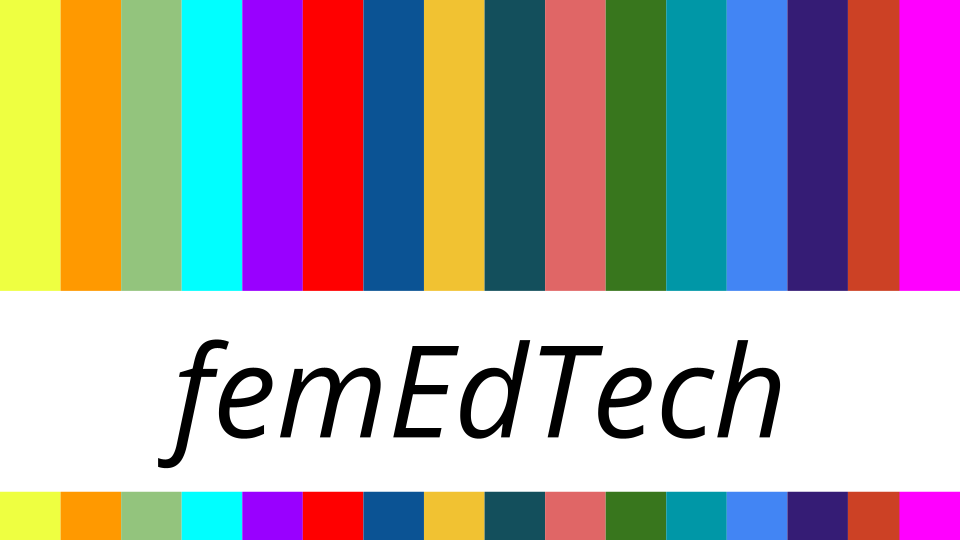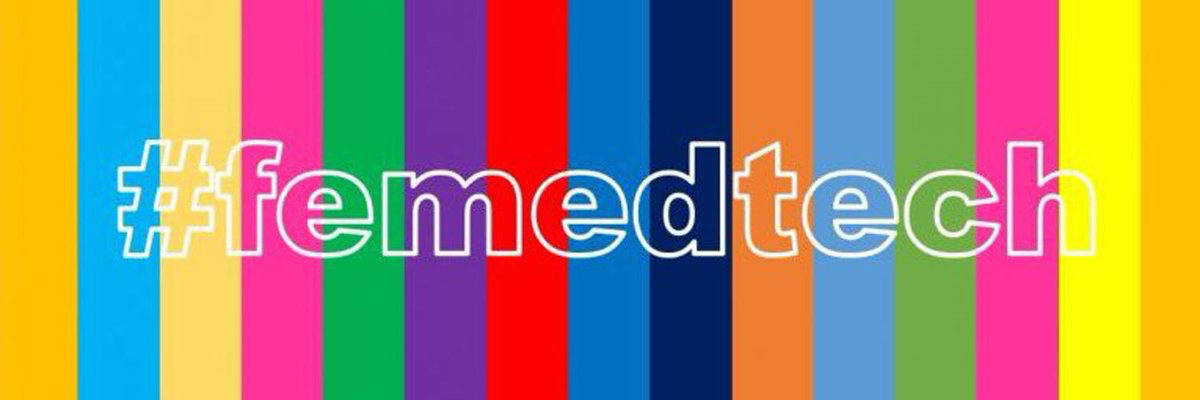I think this might another lens on the question we were asked by the curators:
- In what ways can openness be an act of conformance or defiance?
The first inspiration for the #femedtech network, as I remember (and I’m aware that ‘remembering’ it is already a positioning statement) was for women in shared work to meet and share our experiences. But before we had even met we were aware of a discomfort, a cosiness that itched and didn’t comfortably fit. We (the early ‘we’) checked our privilege while we celebrated the support we had from each other. We were in education – and in technology – because we saw opportunities to redress inequalities of all kinds, especially in access to powerful knowledge and learning. We were often disappointed, and not just on behalf of women. We discussed identities: ‘fem’ ed tech, not ‘women in’. We were not a sorority, boosting each other’s Linked-In profiles. We challenged ourselves to think as openly as we could about what #femedtech could be, and that challenge is ongoing in the network with its emergent codes, and with its shifting centres and peripheries.
There’s always a conflict between occupying the space that is local to us – safe in solidarity with other known women – and opening up to others in uncertain territory. It’s hard to know when to claim a part in history, and when to get out of the way of something becoming different. There are as many ideas about #femedtech as there are users of the hashtag.
The question I’m posing here is my own, but I’m hoping to put it into dialogue with other questions and other voices, some I know and some I haven’t heard before.
Open education as a feminist space?
If there are so many capable, powerful, well-connected women in learning technology and open education (and there are), why do we need a feminist agenda? What are feminists doing here, and what would it mean to say that this is a feminist space?
I want to offer some openings into this question. I am adding links to short essays with ideas and explorations as they take shape. This can only be a provisional move, a summoning of some history while leaving the present and future open. (All the images are from Wikimedia commons, shared under CC BY-SA 4.0). Here are some of my partial responses.
- Teaching/learning with technology is gendered work
Alongside tech companies, educational organisations are among the most powerful forces shaping the future – our technologies, knowledge practices, values and work. So it matters that both kinds of organisation (ed and tech) are deeply, institutionally discriminating in their employment practices, in crude economic terms, and culturally in terms of how different kinds of work are gendered.
2. The promise of equal opportunities to learn
I’ve found it helpful to think about three different claims for the democratic effects of educational technology: access, participation, and outcomes. I realised this week that these correspond well to the three kinds of social justice – redistributive, recognitive, and representational – that Sarah Lambert introduces in her discussion space at OER19.
Equality of digital access (fully open, redistributed access to knowledge, networks and tools) is still a long way off. But further off still is the recognition that networked learning is different for people with who have different experiences of power and privilege. Learning groups and networks are not immune from these, however open they may seem and however hard their members struggle against the kinds of positioning that are commonplace in other settings. And even with full recognition of the injustices inherent in our education and our technologies, we cannot as educators determine what the learning we offer represents in the wider world. When will more equitable access to learning – via technology – lead to genuinely more equitable life chances: more equitable access to valued work and work roles, better pay and conditions, better quality of life?
3. Contesting educational futures
Technology, we are always being told, is ‘the future’ of education. But why is futures thinking so often the province of particularly privileged men? Why do men occupy the future so confidently, while women seem mired in the messy business of caring for the here and now? And is that why gender relations – and issues of social justice more broadly – so rarely get included in our collectively imagined futures?
4. Inequalities wired-in
We have Virginia Eubank’s work on Automating Inequality, Cathy O’ Neil’s expose of how big data undermines democracy and social justice, Audrey Watters on how ed tech companies are using student data, and the unsurprising news news that heavily biased student ratings are being wired in to the system for valuing and rewarding teachers. Of course we should be teaching girls to code, but don’t we also need to be nurturing those social scientists and activists who can ask what code is doing to us?
5. Learning from feminist pedagogies
Art-Feminism_Wikipedia_Edit-a-thon_at_The_Museum_of_Modern_Art_New_York_2.jpg
A classroom characterised as people connected in a net of people who care about each other’s learning as well as their own… Such a perspective is ecological and holistic. The classroom becomes an important place to connect to our roots, our history, to envision the future. The web of interrelationships in the classroom is seen to stretch to the local, regional and global communities.
This vision of a global, interconnected classroom predates the world wide web by several years and the first MOOCs by almost twenty. It was written in 1987 by Carolyn M Shrewsbury in a special issue of Women’s Studies Quarterly on Feminist Pedagogy. Other contributions focused on journaling, linking personal and academic identities, and building communities of practice.
In the same issue, from Barbara Omolade:
Three issues form the context of my thinking about Black feminist pedagogy: the clarification of the source and use of power within the classroom, the development of a methodology for teaching writing skills, and the need for instructors to struggle alongside their students for a better university.








Provide Feedback